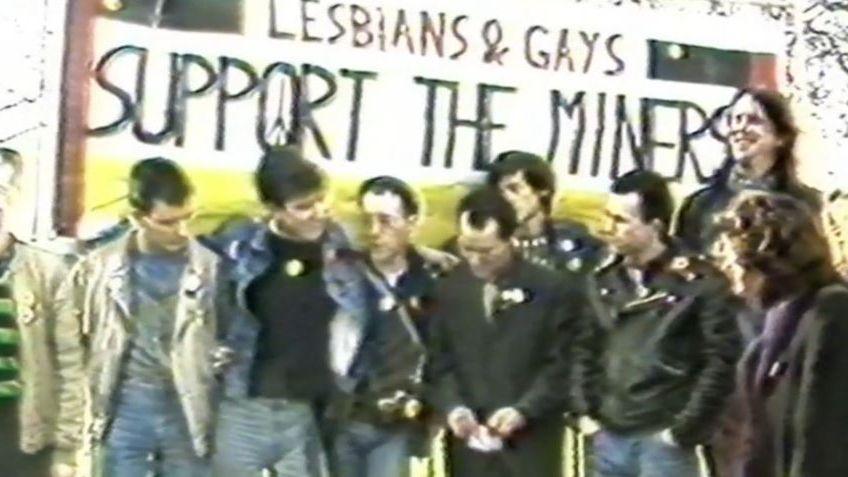Kit celebrates county's role in Spanish Civil War
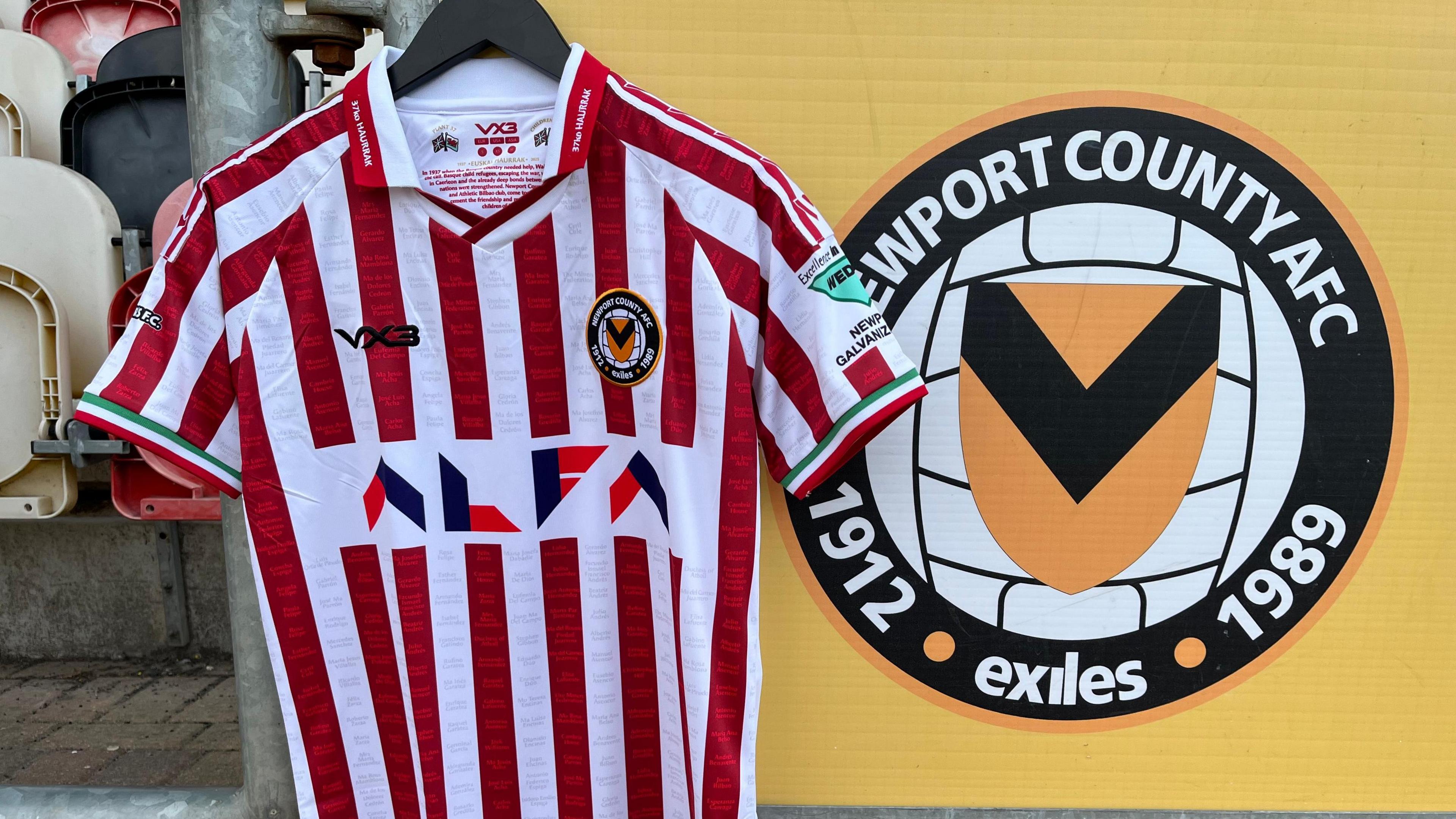
Newport County's away shirt includes the names of all 36 children who came to Caerleon, as well as phrases in Welsh, English and Basque, and a short message on the history
- Published
Newport County officials have been "blown away" by the response to their new kit, commemorating Basque refugee children fleeing the Spanish Civil War.
A group of 36 children from Bilbao were relocated to Caerleon in 1937 to escape the conflict, and some of their descendants still live in the town to this day.
On Tuesday night, a commemorative away kit, modelled on Athletic Bilbao's red and white stripes, was officially worn by Newport County for the first time as the Exiles sealed their place in the Carabao Cup main draw after beating Barnet on penalties.
"I shed a tear when I first saw it," admitted the club's creative director Neal Heard.
He added that more shirts were sold abroad than in the UK when it first launched.
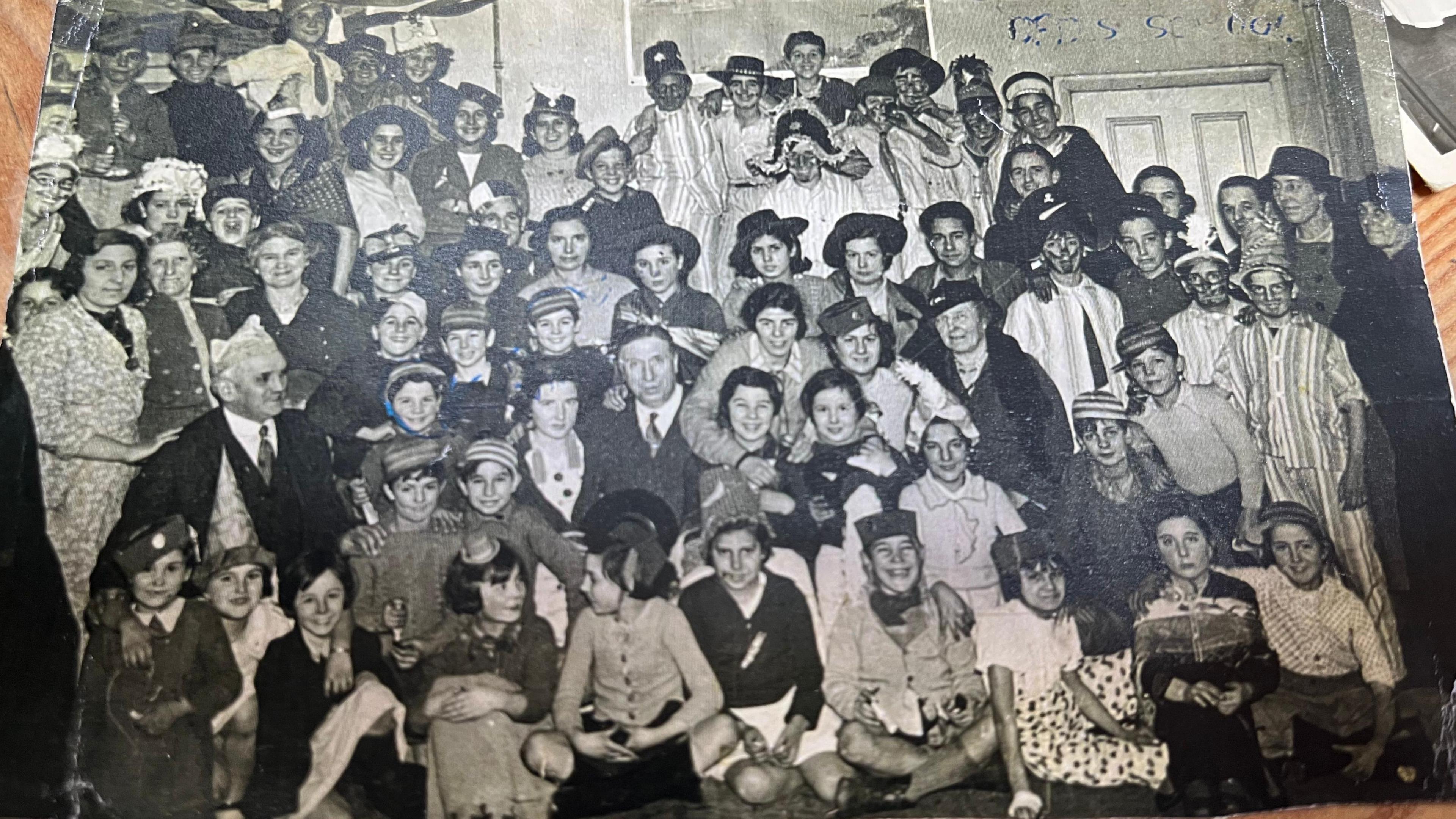
The children who came to Caerleon were cared for by a Basque woman, Maria Fernandez - most eventually returned to their homeland
Mr Heard, a self-confessed "history geek", first pitched the idea last year having grown up in the area and known about the Basque children's story.
The contingent sent to Caerleon were among a group of 4,000 who were relocated across the UK, as civil war raged in Spain between the Nationalists of General Franco and Republican forces.
Mr Heard soon realised, however, that even among locals, it seemed to be a forgotten piece of history.
"I've been surprised how many Newportonians have said 'we never knew about it'," he said.
"For me, Wales forgets some of the good stuff it's done and how it connects to the world."
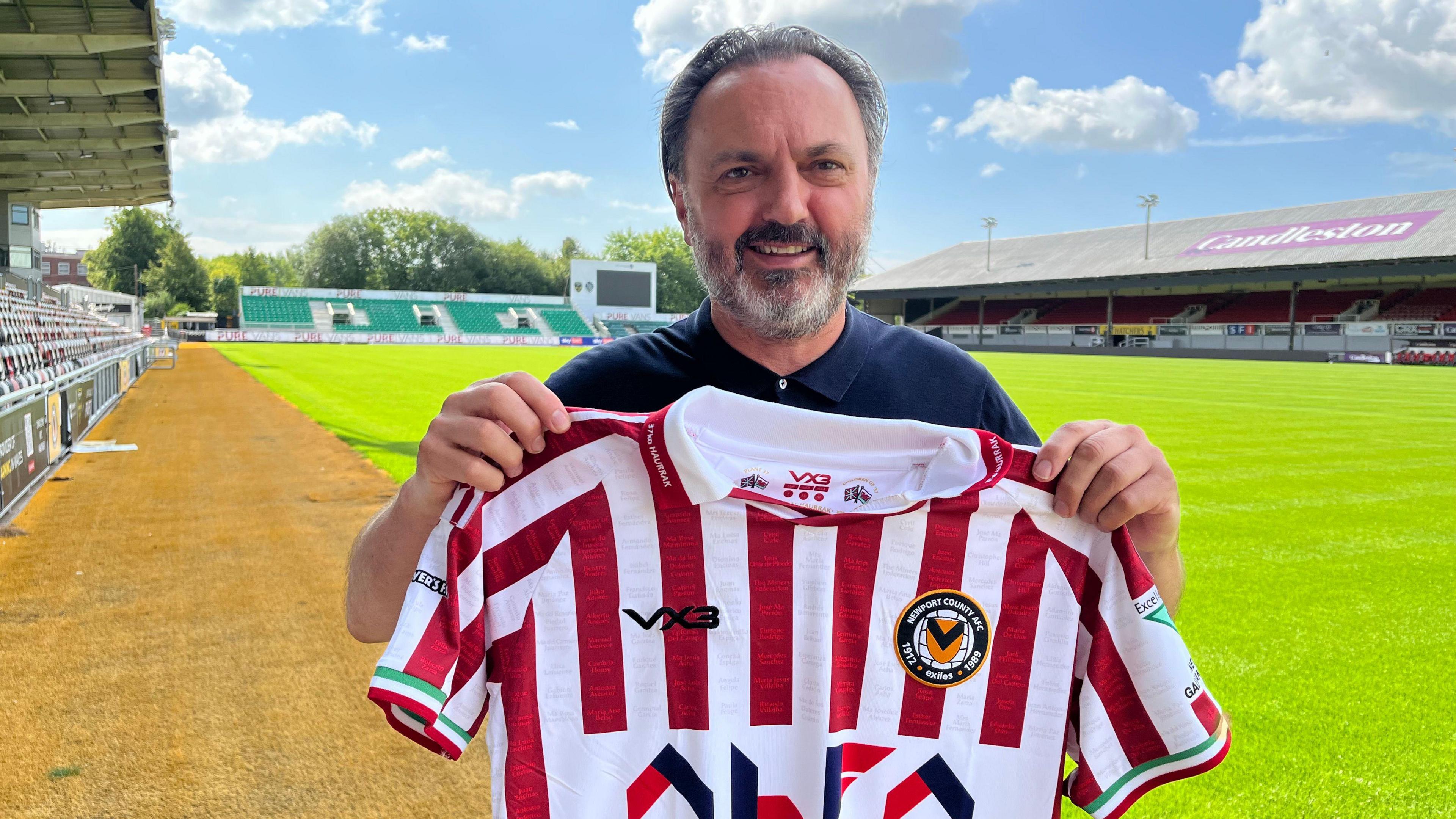
Neal Heard said he was "amazed" at how many Basque people said the shirt "resonated" with them, on a visit to Bilbao
"I love this story and thought we should bring attention to it - how can we bring it up to the modern day?"
Mr Heard then contacted Athletic Bilbao - who play in Spain's top division, but have a policy of only signing Basque players - and they enthusiastically agreed to collaborate.
"It's a moment of history that's very, very important for the Basque country as a nation," said Dan Parry, Athletic Bilbao's International Communications Officer.
"It was one of the lowest ebbs in in the country's recent history, at least - and Wales responded, when the Basque country needed help.
"So I think it's a kit that really resonates with our fan base."
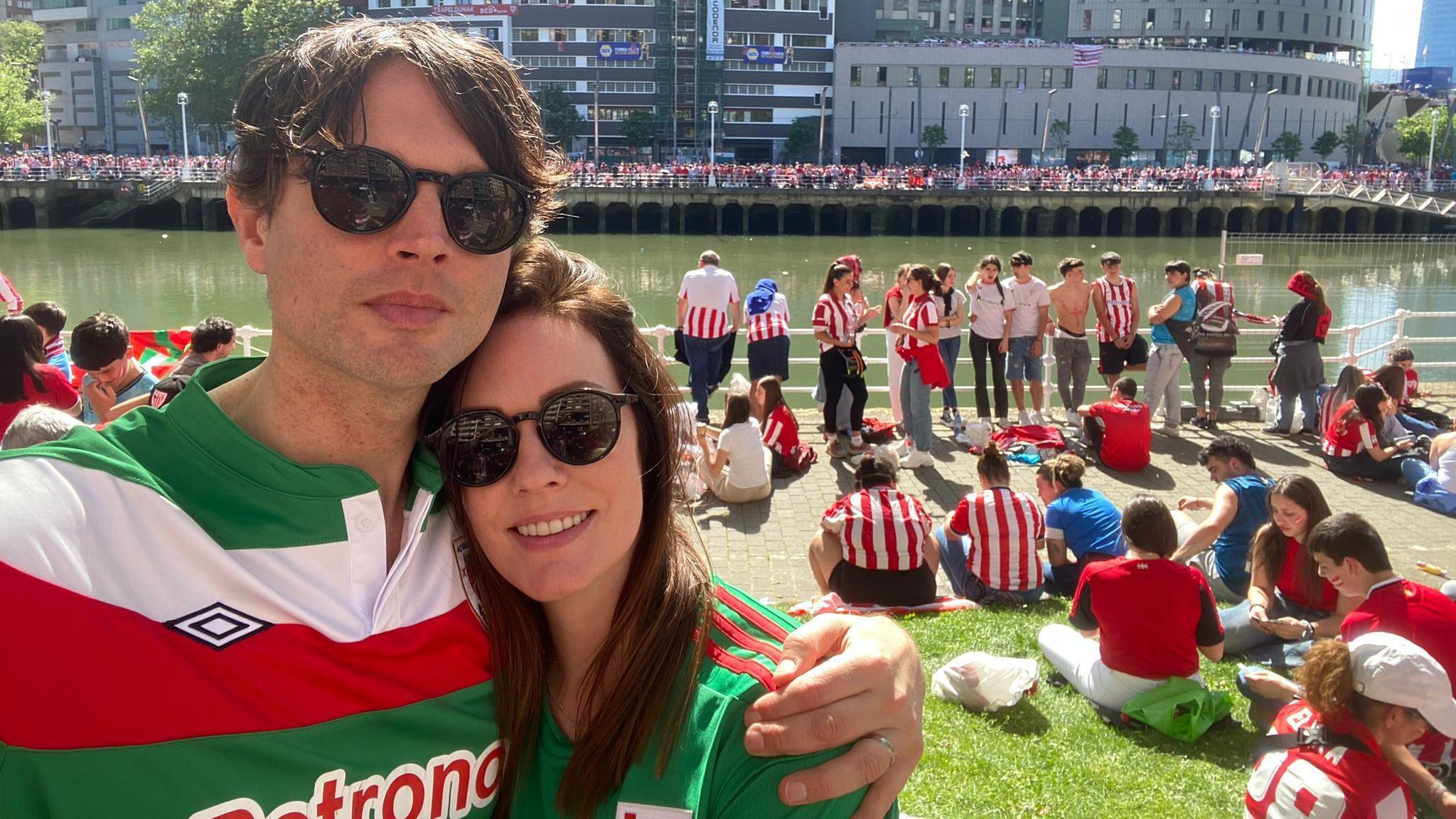
Christopher Evans says the link between Newport County and Athletic Bilbao is "surreal", but hopes it will strengthen ties between Wales and the Basque country
That appears to have translated into sales, with a video of the kit filmed in Bilbao leading to more orders coming from Spain than the UK during the initial launch.
The reaction has not surprised Christopher Evans, a Newport County fan who recently published the first English-language book on the history of Athletic Bilbao.
"I think the story is amazing, and it resonates with what's going on in the world," he said.
"I'm proud to be from Newport and live in Caerleon, and I'm proud that we took in refugees.
"I've seen people on social media, fans from Swansea and Cardiff saying 'I'm not a Newport fan, but I'm buying the kit'.
"When Neil mentioned the concept to me, straight away I thought 'this is going to fly'."
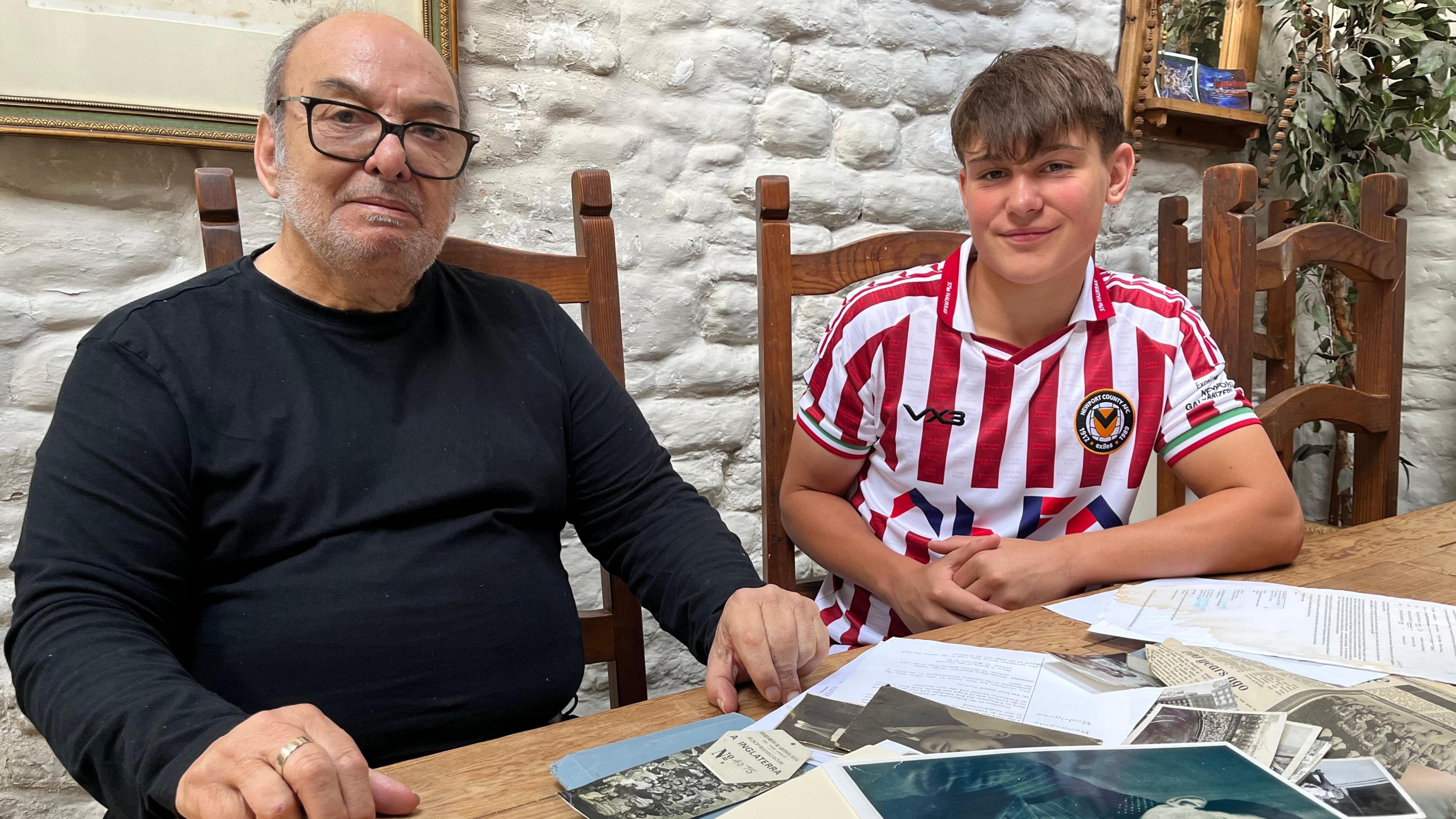
Steven Benavente and his grandson Luca, 17 - Steven's father Andres was one of the Basque children who settled in Caerleon
One of the 36 children who found themselves at Cambrian House in Caerleon in 1937 was Andres Benavente, who was 11 at the time.
The evacuation had happened following the bombing of Guernica by Franco's forces, where hundreds of civilians were killed in the town near Bilbao.
"He did say that was one of the things that lived with him," said Andres' son Steven, who still lives in Caerleon.
"They were affected for the rest of their lives.
"He said that when the children had art lessons, the first thing the kids would do was paint pictures with planes and tanks, and all the horrors that went with it."
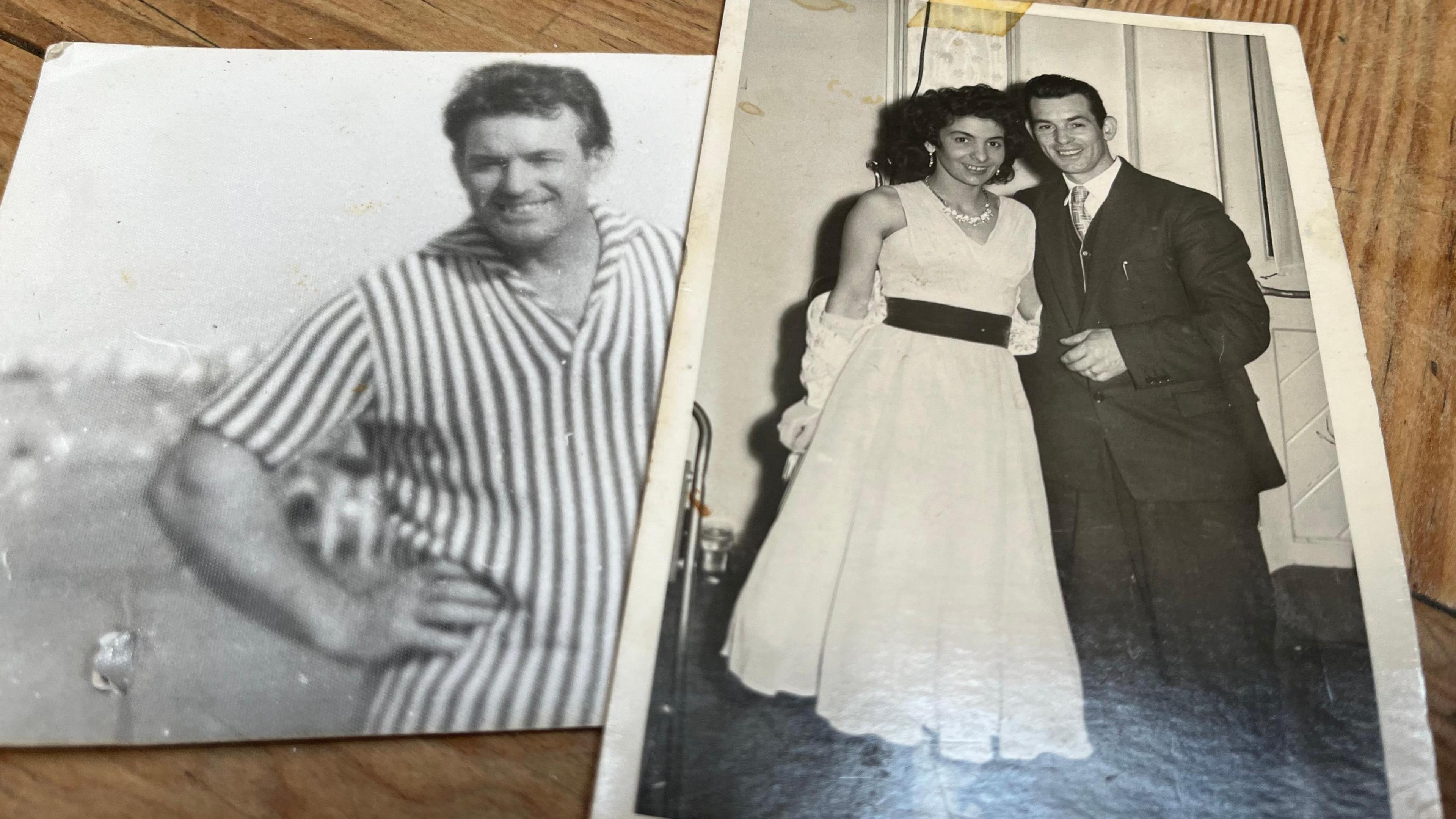
Andres Benavente was fostered and eventually stayed in Caerleon after marrying Linda, who was of Italian descent
Leaving his parents behind, Andres' loneliness was compounded when his sisters were placed in Scotland, where one died before he saw her again.
He later found out that both his parents had also been killed in the conflict, with his father executed for his links to the socialists.
"It was a difficult time for him in many ways," said Steven.
"Language was a problem, but he eventually settled."
With virtually no money to pay their way, the children were cared for by Maria Fernandez - a Basque woman living in the area - and formed a dance troupe and choir to help raise funds.
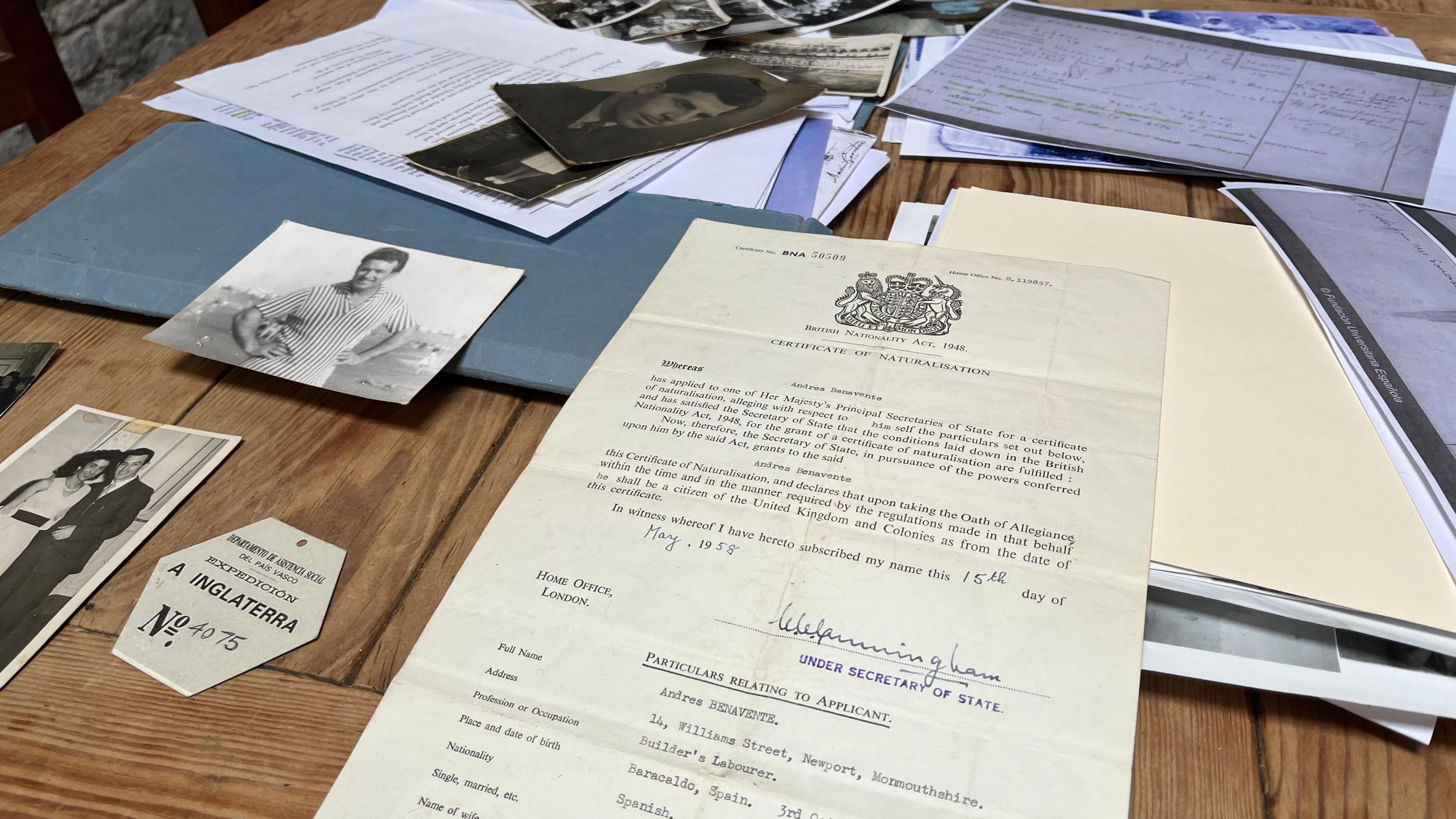
Andres Benavente was officially given leave to remain in the UK in 1958, having been one of the few Basque children who had not returned following the war
There was also a football team, the Basque Boys, who toured south Wales and played games at grounds including Somerton Park in Newport and Cardiff's Ninian Park.
They soon made a name for themselves as one of the most formidable youth teams in the country, and two of the boys went on to play professionally after returning to Spain.
Andres was one of the few who remained in Caerleon after the end of World War II, and Steven says it was "great" that the "Children of 37" were now being remembered once more.
"The shirt is covered in names of people I've heard from the past, names I remember my dad speaking of," he said.
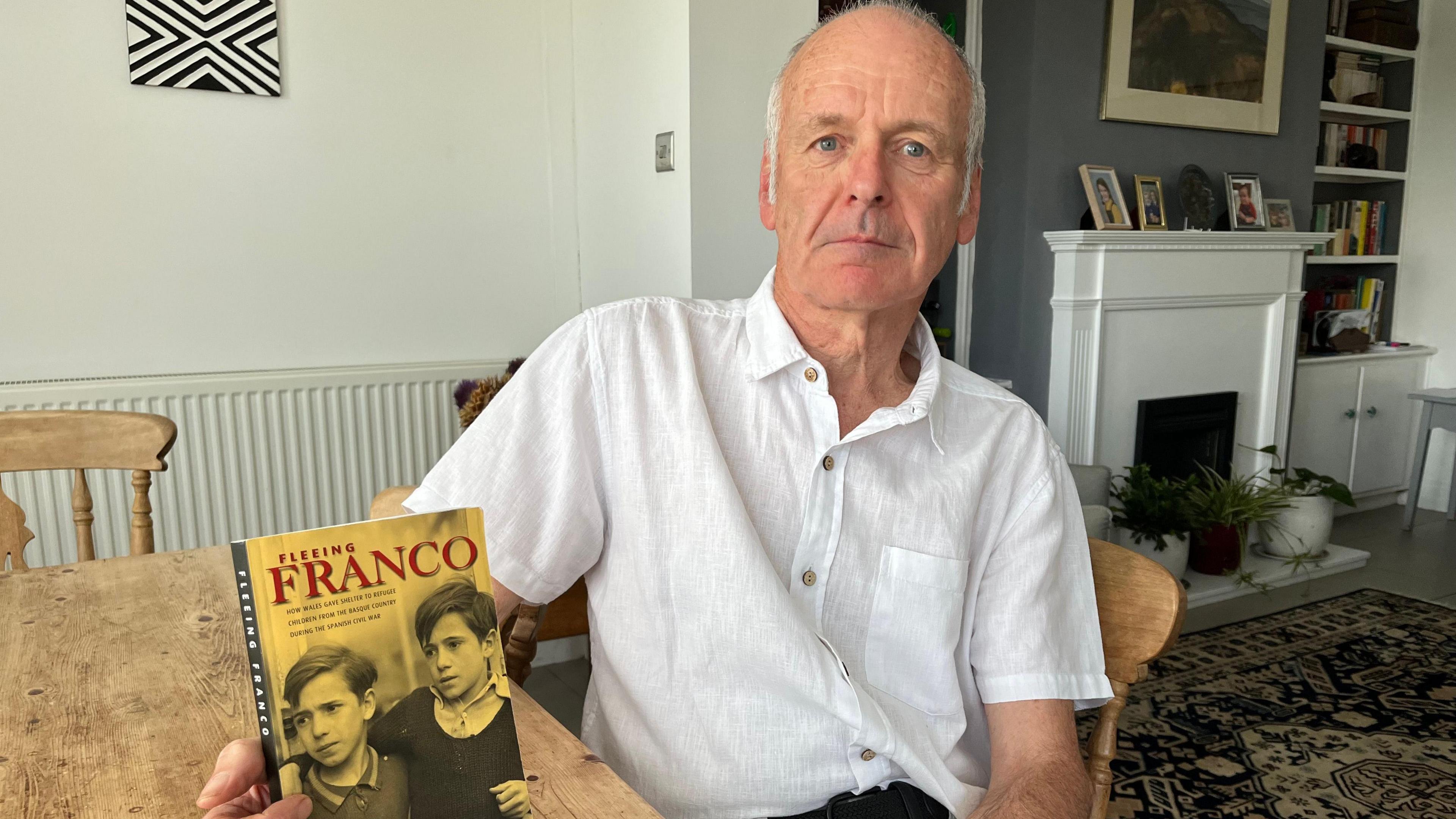
Hywel Davies says the activities of the Basque children in Caerleon "spread the word about what was going on in Spain", and also gave them "a purpose and a sense of worth"
Historian Hywel Davies, who has written a book on the Basque children evacuated to Wales, said locals in Caerleon were especially "supportive and welcoming" at the time.
"Caerleon was probably the most successful 'colony', as they called them, in Britain," he said.
"People gave their last penny [to help them].
"It was part of a political awakening in the 1930s, in particular with the miners' union, and maybe we've forgotten that, maybe we've forgotten generosity and kindness.
"Their story deserves to be remembered, but it also makes people more aware of the fact that we are interlinked, and we're not going down the road of isolationism and fear of refugees.
"Because what went on then is something that needs to be replicated, not just remembered."
Related topics
- Published15 April 2017
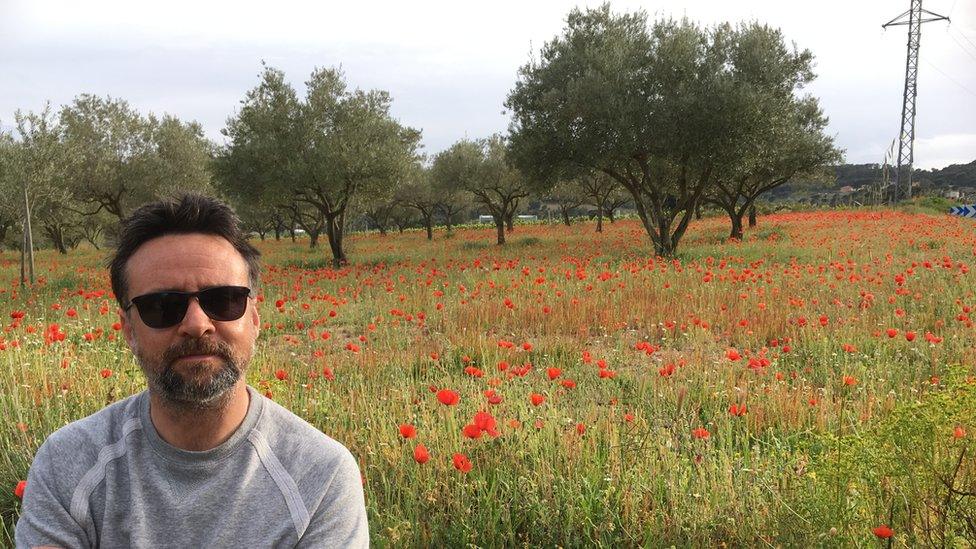
- Published18 February 2024

